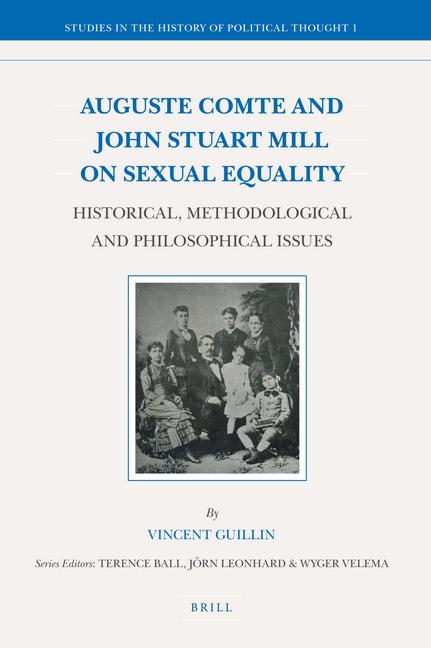
Zustellung: Mo, 11.08. - Sa, 16.08.
Versand in 3-4 Wochen
VersandkostenfreiBestellen & in Filiale abholen:
Vincent Guillin uses the issue of sexual equality as a prism through which to examine important differences epistemological, methodological, and theoretical between Auguste Comte and John Stuart Mill. He succeeds in showing how their differing conceptions of science and human nature influence and affect their respective approaches to philosophy and to the analysis of female (in)equality in particular. Guillin shines a bright searchlight into long-neglected aspects of both men s thinking for example, Mill s proposal to construct an ethology, or science of character-formation, and Comte s seemingly bizarre interest in phrenology and the ways in which these shaped their views of women s intellectual and political capacities. Guillin s wide-ranging study examines both men s major and minor works, their correspondence with one another, and the reasons for the final acrimonious break between two of the nineteenth century s most original and important thinkers.
Inhaltsverzeichnis
Acknowledgments Abbreviations Introduction
1. Comte and Mill on Sexual Equality: Context and Problems
2. The Female Brain and the Subjection of Women: Biology, Phrenology and Sexual Equality
3. The Phrenological Controversy
4. The Explanation of Moral Phenomena: Comte and Mill on the Architectonics of the Moral Sciences
5. A Never Ending Subjection? Comte, Mill, and the Sociological Argument against Sexual Equality
6. The Ethological Fiasco: The Methodological Shortcomings of the Millian Science of the Formation of Character
7. How To Discover One's Nature: Mill's Argument for Emancipation in the Subjection of Women Conclusion Appendix: Comtean Studies, 1993-2000 Bibliography Index
1. Comte and Mill on Sexual Equality: Context and Problems
2. The Female Brain and the Subjection of Women: Biology, Phrenology and Sexual Equality
3. The Phrenological Controversy
4. The Explanation of Moral Phenomena: Comte and Mill on the Architectonics of the Moral Sciences
5. A Never Ending Subjection? Comte, Mill, and the Sociological Argument against Sexual Equality
6. The Ethological Fiasco: The Methodological Shortcomings of the Millian Science of the Formation of Character
7. How To Discover One's Nature: Mill's Argument for Emancipation in the Subjection of Women Conclusion Appendix: Comtean Studies, 1993-2000 Bibliography Index
Produktdetails
Erscheinungsdatum
31. August 2009
Sprache
englisch
Seitenanzahl
367
Autor/Autorin
Vincent Guillin
Verlag/Hersteller
Produktart
gebunden
Gewicht
752 g
Größe (L/B/H)
247/167/29 mm
ISBN
9789004174696
Bewertungen
0 Bewertungen
Es wurden noch keine Bewertungen abgegeben. Schreiben Sie die erste Bewertung zu "Auguste Comte and John Stuart Mill on Sexual Equality" und helfen Sie damit anderen bei der Kaufentscheidung.









